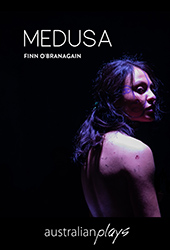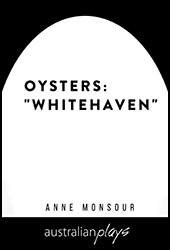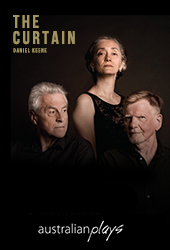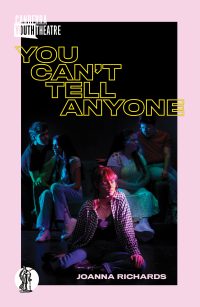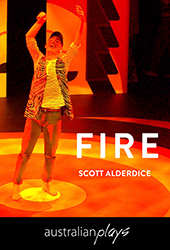Shop
MEDUSA
Price range: $5.40 through $15.00
A text-based dance party/religious ritual performance project retelling the mis-told and misunderstood myth of Medusa. In this version, a fierce-as-f*ck ensemble perform a ritual to awaken the goddess, and give her back her head.
The text is a modern reinterpretation of the story of Medusa, told with modern language, settings and references. Set in a nightclub/temple, the ensemble cast create scenes from a modern life to retell the ancient (and largely mistold) story of the rape, banishment and beheading of Medusa, the gorgon woman who could turn people to stone. Delving into history, pop culture, mythology, religion, psychology, sociology and symbolism to look at the conversations raised by the content. The work tries to imagine a different ending for Medusa, and for the women who will leave the theatre.
Medusa becomes a kind of feminist totem - and is being summoned to protect and fight for the women calling her up. The work is primarily a display of solidarity, and simultaneously a celebration, a party, and a warning to oppressors. The audience can either be swept into and participate in the ritual or bear witness.
Medusa is about the experience of living in a female body. It’s about what it is like when a woman’s body goes from being ‘desirable’ to ‘repulsive’, when we are conditioned and socialised to be seen only to have value within our physicality. It speaks to the way we are desensitised to yet titillated by women being murdered and bodies dissected on screen - in films and on the news. In an atmosphere of rage we are giving Medusa back her head and her power. We are advocating for solidarity and healing.
Casting: This work is for an ensemble of physical performers of various ages. I am also interested in an entirely female cohort. There are central roles for older women. I encourage anyone casting this production to consider performers from diverse ethnic or cultural backgrounds, sexualities and disabilities. The central roles of Medusa especially should be considered for women+ of colour.
- ritualistic, non-traditional theatre based in mythology
- 60
- 17 total
- 12 female identifying, 5 male identifying
- gender, women
- 18+
- adult
- Australian Script Centre
- MONOLOGUES
- GALLERY
- LINKS & DOWNLOADS
- PRODUCTION HISTORY
You can preview the full online text with a Membership
Medusa
Female | 60+ | Unspecified
Starts on page 15
EXTRACT: When I was a kid they called me ‘Chicken Legs’. That’s the name of a witch. Our teacher read us the story of Baba Yaga. In the playground, the kids all stood around – “Baba Yaga, Baba Yaga, chicken legs Baba Yaga†You say it enough times and she appears. So I played along. I’d sit real still until one got close, then I’d jump up and chase them, gnashing my teeth.
Athena
Female | 20s | 3 to 5 minutes
Starts on page 17
EXTRACT: How to turn to stone: All matter can move from one state to another. Humans are mostly liquid. But we’ve seen water turn to ice We’ve seen snake poison clot up blood to jelly – Even oxygen can solidify in the right conditions.
Medusa
Female | 60+ | Unspecified
Starts on page 35
EXTRACT: I was working in a pub once. Out of town Someone told me there were more jobs the further out you went.
St Peter
Male | Unspecified | Unspecified
Starts on page 41
EXTRACT: I want to make something clear. We cannot give anything to you for free.
Medusa
Female | 60+ | Unspecified
Starts on page 45
EXTRACT: Old Woman. I don't remember the first time they called me that.
REVIEW
DIRCKSEY MAGAZINE, ZACHARY SHERIDAN, OCTOBER 2018.
"Medusa is a messy, sweaty, and pumping affair."
REVIEW
GROK, TABITHA DOWDING, OCTOBER 2018
"Medusa has been re-contextualised for thousands of years. She has been constructed as a monster, as a villain, and as lesson for all women to be conscious of their apparent valuable, yet fatal beauty. O’Branagà in’s contextualisation disrupts this toxic objectification of women that has been engrained into history and mythology. Instead, we must perceive the story of Medusa as an injustice, reject monstrous narratives and critique these engrained monolithic perceptions of women."
REVIEW
SEESAW, STEVEN COHEN, OCTOBER 2018
"Messy, mucky and co-operative, Medusa succeeds in creating an incongruent spectacle."
REVIEW
MURDOCH REVIEW, ZENNA NEWMAN, OCTOBER 2018.
"Writer Finn O’Branagáin has constructed a wonderful piece, filled with powerful ideas and messages that are completely open to your own interpretation."
WWW.FINNOBRANAGAIN.COM
"The ultimate goal of the work is to create a real-world empowering and feminist cult of Medusa. Through repeated prayers, symbols and easily-replicated participatory rituals, and ongoing marketing and publications, we hope that the ideas of the work permeate the ‘real’ world and create change." Finn O'Branágain, Playwright.
PLEASE NOTE: This page contains links to files that have been sourced, and websites that are maintained by other businesses and organisations. Please refer to our terms of use.
PLEASE NOTE: You will be directed to AusStage.edu.au for search results; Australian Plays Transform is not responsible for their completeness. Refer to our terms of use.

